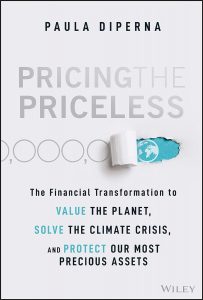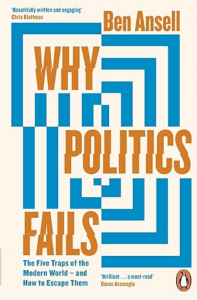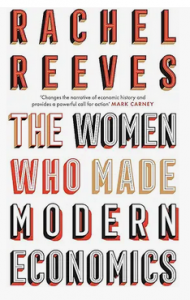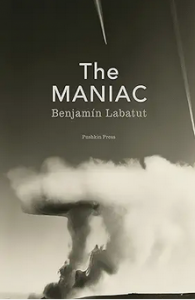Paula DiPerna’s Pricing the Priceless is an excellent general introduction to the questions of measuring the value of nature, and the use of economic instruments to improve the sustainability of economic activity. The author has been involved in environmental campaigning ‘at the forefront of finance and climate policy’, as the blurb puts it.This included a pioneering privately-created carbon market in the US. Her aim is to persuade those concerned about the environment – and I take this as her target audience – that better outcomes will result from pricing nature, even accepting its intrinsic value.
The first chapter covers the flaws in the use of GDP as the metric of economic success – familiar territory. It’s somewhat unfairly dismissive of the efforts that have gone into the Sytem of Environmental Economic Accounting, that will bear fruit in the 2025 revision of the way GDP statistics are defined and measured. But as the chapter points out, the efforts to measure digital intangibles have helped parallel efforts to measure nature and ecosystem services.
Subsequent chapters take specific contexts and types of instrument – carbon markets, water markets, rhino bonds, carbon offsets and so on. They make for interesting reading. The chapter on China’s interest in carbon markets was particularly interesting. I hadn’t realised that it measures carbon intensity (per unit of eocnomic output) rather than the aboslute amount of CO2-equivalent.
For people who are already persuaded of the need for tools such as markets and payments for ecosystem services to improve the chances of a sustainable path to prosperity, the attraction of the book is in the vivid detail. The author has quite a florid writing style, but has a lot of insights and interesting detail, and it’s quite fun to read about her audience with the Pope (who was converted to the carbon markets idea). For the unpersuaded, the ecologists and environmentalists who find this approach repugnant (in the sense of Roth’s repugnant markets as well as the normal sense), I don’t know if the book will change their minds. I hope so.




